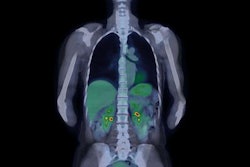Dear Imaging Informatics Insider,
Evidence is growing that clinicians prefer structured instead of unstructured radiology reports. An Irish research team has now made the case that structured reports also are more effective.
After conducting an online survey of nearly 150 clinicians, researchers from Mater Misericordiae University Hospital in Dublin concluded the respondents had significantly better recall of critical and noncritical findings, as well as the correct diagnosis, after reviewing structured radiology reports. Click here for our coverage of their ECR 2017 presentation.
Deep-learning software can perform better than a nondeep-learning method that's been used previously in computer-aided detection software, according to another study presented at ECR 2017. A team of researchers from Huazhong University of Science and Technology in Wuhan, China, and Yale University School of Medicine in the U.S. found their deep-learning software may be able to help radiologists differentiate between prostate cancer and benign conditions on MRI. Click here for the details.
Swiss researchers also reported that deep-learning software can read mammograms as well as radiologists. Learn more by clicking here. Speaking of deep learning, our editors highlighted its growing importance in radiology in our article of the top 5 trends from ECR 2017.
When paired with continuing education for radiographers/technologists, dose monitoring software can yield quantifiable reductions in radiation dose delivered to pediatric patients from conventional radiography studies, according to a Spanish group. Click here to learn how the team successfully leveraged a centralized dose monitoring system at six hospitals in the Madrid area.
A proposed extension to the DICOM Grayscale Standard Display Function enables users to calibrate colors on imaging displays. Learn how by clicking here.
It can be challenging to understand k-space, the mathematical abstraction that connects MRI scan parameters with the clinical image. Our latest Mobile App Spotlight, however, features an iOS app that may make that task a little less overwhelming. Called A k-Space Odyssey, the app allows users to adjust MR scan parameters and immediately see the effect of those changes on the clinical image. Begin your odyssey to improved MRI knowledge by journeying here.
If you have any tips or suggestions for topics you'd like to see covered in the Imaging Informatics Community, please feel free to drop me a line.



















